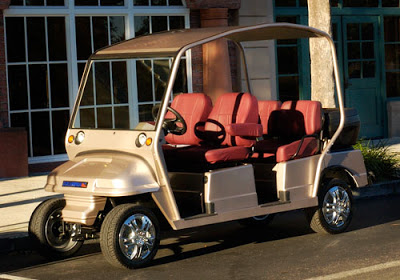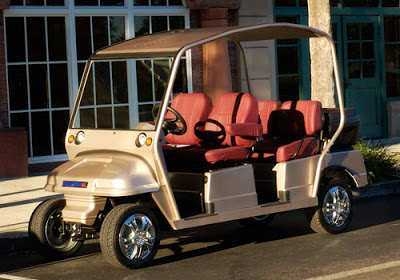by jboullion | Nov 18, 2008 | Uncategorized
From the institute’s description of itself:
Founded in May of 2007, the Institute is a “go-to” resource for every context of “Sustainability in the St. Croix River Watershed.” Besides the “walk the talk” service it provides to the UWRF campus community, it is the primary resource for regional, county, town, and municipal leaders seeking assistance with sustainable community development (SCD) in response to the myriad of environmental, social, and economic challenges.
Through a holistic, systems-thinking approach, Institute staff, faculty experts, student interns, and research teams from UWRF are coordinated to address the breadth and depth of comprehensive planning, development, and commercial issues that ultimately define the quality of “The River” and the quality of life in the valley.
This includes, but is not limited to:
+ Assisting the region in a comprehensive benchmarking and tracking of integrated data on ecologic integrity, social justice, and economic vitality;
+ Achieving maximum self-sufficiency and commercial value for local food, fuels, water, housing, transportation, native habitat, and carbon sequestration systems; and
+ Partnerships across all social contexts, from the arts to community health, job development, education, and other civic engagement initiatives.
by jboullion | Oct 21, 2008 | Uncategorized
From a story by Sarah Rasmussen on WEAU News:
We’ve all heard of building energy efficient homes, but with a new grant, a Black River Falls couple is taking their plans to the extreme.
The Chambers’ are building a Green Max, net zero home that will produce just as much energy as it consumes.
Tom Chambers says the overall cost is $325,000 to build, but a $50,000 grant from Wisconsin Public Power Inc. and an additional $16,000 in energy incentives will help them complete this technological wonder.
After more than a year of planning and several blueprints later, the chambers are finally able to build their Green Max home.
“We always, both of us have been conscious of sustainability and conservation,” Chambers says.
Solar panels will help the home produce energy, but there are many other energy saving aspects in the home to help it break even.
“First thing you have to do is build a home that is isolated from everything exterior,” Chambers says.
“We’ve added additional foam insulation under the basement slab. There’s two inches of foam there. There’s two inches of foam on the exterior of the basement walls. You can see we’ve added an inch of foam all the way around the exterior of the wall,” says General Contractor Todd Paige.
He says they built the home using 2x8s instead of 2x6s to increase the amount of insulation in the walls.
Another interesting aspect of the home is the windows. For example, the windows on the west side of the house will be treated to let more heat from the sun in during the winter, while the windows on north side of the house have been treated to block heat from the sun during the summer.
The Chambers’ home will be heated by a geothermal heating system.

by jboullion | Oct 17, 2008 | Uncategorized

The all-electric vehicles from Columbia ParCar offer one transportation
alternative to the internal combusion engine. (Photo courtesy of
Columbia ParCar, Reedsburg, WI.)
From an editorial in The Thomah Journal:
For all the attention the banking and insurance bailouts have received — and anything that involves $1 trillion of taxpayer money deserves attention — it’s only a short-term fix to what ails the American economy and American living arrangements. To solve its long-term problems, America needs a new sustainability agenda.
Unfortunately, discussions of sustainability are limited to the poor and whether it’s possible, for example, to guarantee adequate health care for everyone. That’s a very narrow definition. We need a broader view of sustainability that examines:
* Mobility. Exurban lifestyles in which people live in big houses and drive big automobiles to jobs located 30, 40 or 50 miles away impose a huge cost on the economy and environment. We need an agenda of sustainable neighborhoods that require us to drive fewer miles — or not at all — to meet basic needs.
* Energy. It’s unclear how much oil lies beneath the earth’s surface, but this much is beyond dispute: oil is a finite resource, and it will run out some day. It’s not too early to invest in clean, renewable energy sources and develop an alternative to the internal combustion engine. . . .
A nation that can massively subsidize exurban sprawl, non-renewable energy, corporate farms and pre-emptive war is capable of sustaining a sturdy safety net for our sickest, poorest and most vulnerable citizens. It’s just a matter of leaders adopting a new vision of what’s sustainable and what needs to change.

by jboullion | Oct 17, 2008 | Uncategorized

The all-electric vehicles from Columbia ParCar offer one transportation
alternative to the internal combusion engine. (Photo courtesy of
Columbia ParCar, Reedsburg, WI.)
From an editorial in The Thomah Journal:
For all the attention the banking and insurance bailouts have received — and anything that involves $1 trillion of taxpayer money deserves attention — it’s only a short-term fix to what ails the American economy and American living arrangements. To solve its long-term problems, America needs a new sustainability agenda.
Unfortunately, discussions of sustainability are limited to the poor and whether it’s possible, for example, to guarantee adequate health care for everyone. That’s a very narrow definition. We need a broader view of sustainability that examines:
* Mobility. Exurban lifestyles in which people live in big houses and drive big automobiles to jobs located 30, 40 or 50 miles away impose a huge cost on the economy and environment. We need an agenda of sustainable neighborhoods that require us to drive fewer miles — or not at all — to meet basic needs.
* Energy. It’s unclear how much oil lies beneath the earth’s surface, but this much is beyond dispute: oil is a finite resource, and it will run out some day. It’s not too early to invest in clean, renewable energy sources and develop an alternative to the internal combustion engine. . . .
A nation that can massively subsidize exurban sprawl, non-renewable energy, corporate farms and pre-emptive war is capable of sustaining a sturdy safety net for our sickest, poorest and most vulnerable citizens. It’s just a matter of leaders adopting a new vision of what’s sustainable and what needs to change.
by jboullion | Oct 16, 2008 | Uncategorized
From the sustainability Web site of the City of Eau Claire:
A series of Community Workshops will be held in the River Rooms on the ground floor of Royal Credit Union Corporate Center, 200 Riverfront Terrace, Eau Claire, 54703. The next workshop is on November 6, 2008 at 7 p.m.


